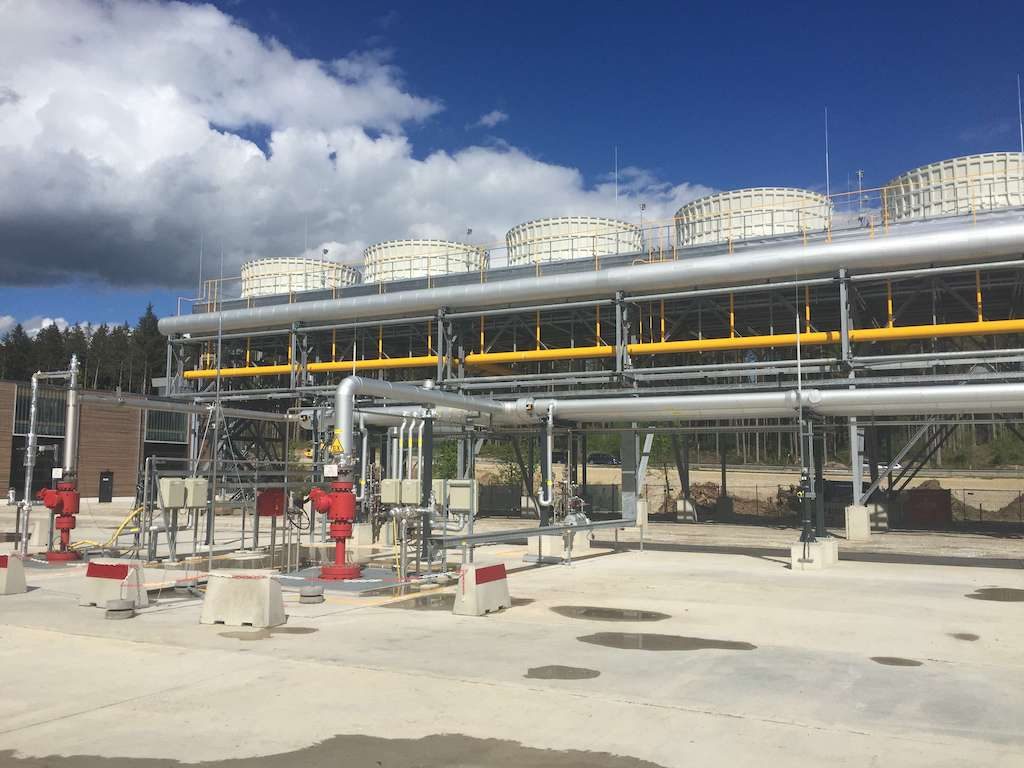Maintenance at Holzkirchen geothermal plant, Germany
The Holzkirchen geothermal plant is going through its annual maintenance with some concerns on the important pump equipment.
Large mobile cranes have appeared on the site of the Holzkirchen geothermal plant in Bavaria, Germany as reported locally. Given earlier challenges for the plant with the submersible centrifugal pump in November, and the cranes having had to fetch 900 meters of pipes from the depths.
The work on the plant is though now planned as the annual summer maintenance work is due. At the same time the pump though remains a challenge to operations.
“Every power plant has to be overhauled once a year,” says Managing Director, Albert Götz. For this it the plant is switched off, and the technical supervision by TÜV checks the safety of operations. Two weeks should be enough to maintain the turbine, check systems and, if necessary, replace them.
Last week, the truck-mounted cranes were used to replace the motors of the 18 powerful fans; the air condensers ensure that the “working fluid”, to which the thermal energy is transferred via heat exchangers, cools down again after the turbine has passed through and becomes liquid. This special refrigerant (fluid) evaporates earlier than water, which increases efficiency. The 150 kilo fan motors run non-stop, and they are extremely worn. That is why the precautionary exchange takes place.
The biggest headache remains to be the special pump in the production well, which pushes the thermal water upwards at a depth of 900 meters. “We use the break to get them out again,” says Götz. It is still running, but Götz and his team are slightly concerned. “We noticed vibrations that we don’t like.”
While the revision standstill is priced into the long-term profitability calculation, the pump failures always hit the office unexpectedly. “We have to get better with pumps,” says the managing director. In the case of the failure in November, however, it is still not clear whether the damage will be a guarantee case – and will be borne by the manufacturer – or whether the defect is due to normal wear and tear; it is about EUR 100,000.
Götz hopes that the current review will also improve the learning curve. So far, the special pumps twitch about every six months. “We would like to have terms of over three years,” says the Managing Director. You are still stuck in a learning process, “unfortunately an expensive learning process,” sighs the managing director. ?
Source: Merkur


















